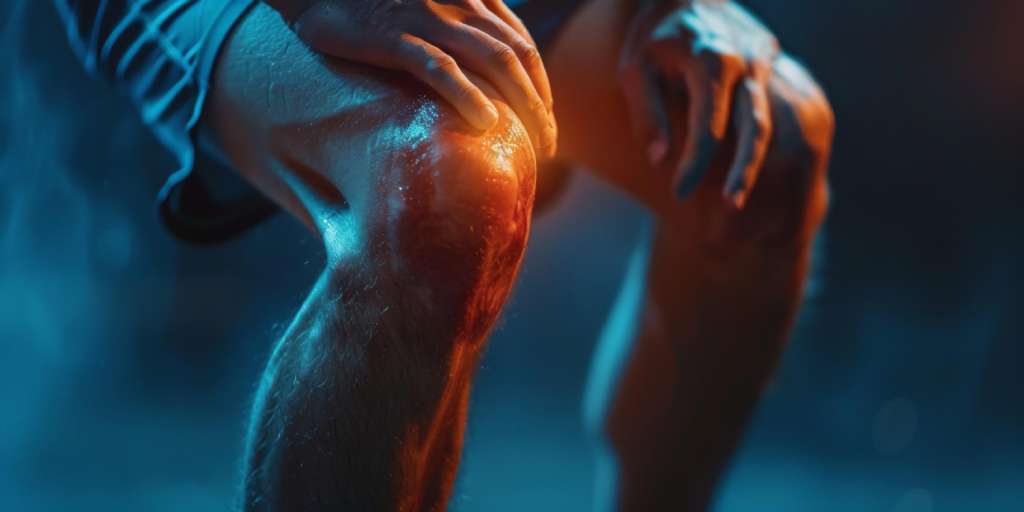Growth Hormone (GH) has been shown to improve physical capacity in those with GH deficiency (GHD) through stimulation of collagen synthesis in the tendon and skeletal muscle, which then leads to better exercise training and increased strength.
In this blog post, we’ll show you all the ways the growth hormone impacts muscle recovery and performance.
What Is Growth Hormone?
Growth hormone (GH) is a peptide hormone that stimulates growth, cell reproduction, and regeneration in humans. It is produced by the anterior pituitary gland, and although its production decreases with age, GH is important for maintaining healthy muscle tissue, reducing fat, and enhancing exercise recovery.
How Growth Hormone Affects Muscle Recovery
- Accelerates Protein Synthesis: The whole purpose of protein synthesis is to make proteins for the cell and the body, which means it helps your body recover and build muscle. After a workout, muscle fibers are damaged, and protein synthesis is what restores these fibers, making them stronger. GH increases amino acid uptake by the cells, which accelerates the repair process and leads to muscle growth.
- Increases Collagen Production: GH stimulates collagen synthesis, which is vital for the healing and strengthening of connective tissues that support muscles. Stronger tendons and ligaments mean fewer injuries and a quicker recovery time from intense training sessions.
- Improves Fat Metabolism: Growth hormone plays a significant role in increasing fat metabolism. During your workout, GH turns fat into energy. This boosts your endurance in the gym and also prevents excess fat from accumulating. The less body fat you have, the more efficient your body becomes in utilizing energy, and it also helps your body recover much faster.

- Speeds Up Muscle Recovery: After a hard workout, muscle soreness and fatigue set in due to micro-tears in the muscle fibers. Growth hormone stimulates the repair of these tears by improving the rate of cell reproduction. This quick repair process then leads to reduced muscle soreness (Delayed Onset Muscle Soreness, or DOMS) and faster recovery, allowing you to train more frequently and do intense training sessions.
The Role Of Growth Hormone In Improving Your Performance
- Increases Muscle Mass: One of the most well-known effects of GH is the ability to promote lean muscle mass growth. By stimulating the production of insulin-like growth factor 1 (IGF-1), GH increases the development of muscle fibers. The result is an increase in muscle size and strength over time, which then directly improves performance in strength and endurance sports. Even though this peptide is naturally produced in the body, you can introduce it artificially. There are numerous suppliers offering the option to buy igf1 lr3 online. Of curse, it’s best to consult with your doctor first.
- Boosts Endurance: Growth hormone improves the body’s ability to use fat as an energy source, preserving glycogen stores for later use during longer exercise periods. This helps athletes to maintain their energy levels for longer durations, boosting endurance during training and competitions.
- Improves Power Output: Athletes who train for power need their muscles to contract explosively and efficiently. GH boosts neuromuscular function, improving the speed and strength of muscle contractions. This leads to better power output in activities like sprinting, lifting, and jumping, making GH a key factor in performance improvement.
- Reduces Recovery Time Between Workouts: Quicker recovery times mean more frequent and intense workouts. By helping the body repair muscle fibers faster and reducing inflammation, GH allows athletes to train harder and recover sooner.
- Supports Bone Density: Growth hormone promotes bone health by increasing bone density, which is especially important for athletes. Stronger bones reduce the risk of fractures and other injuries, allowing for more consistent training. Additionally, increased bone density supports muscle function, as stronger bones provide better leverage for muscle.
Natural Ways to Boost Growth Hormone
While growth hormone levels tend to decrease with age, there are several natural ways to stimulate its production.
- Get Quality Sleep: Growth hormone is released in pulses during deep sleep, especially during the slow-wave stages. Prioritizing sleep and aiming for 7-9 hours per night is essential to support your body’s natural GH production.
- High-Intensity Exercise: Intense forms of exercise, such as weightlifting and interval training, can naturally boost GH levels. Strength training is particularly effective, especially when using compound movements like squats and deadlifts.
- Intermittent Fasting: Intermittent fasting has been shown to increase GH levels by promoting fat burning and encouraging the body to release more growth hormones. Time-restricted eating can support lean muscle growth and fat loss.
- Nutrition: Proper nutrition is vital. Eating a diet rich in protein, healthy fats, and complex carbohydrates helps maintain balanced hormone levels. Arginine-rich foods, like turkey, chicken, and pumpkin seeds, may further promote GH release.
- Reduce Stress: Chronic stress leads to elevated cortisol levels, which can suppress growth hormone production. Managing stress through relaxation techniques, such as meditation or yoga, helps maintain optimal hormone balance.

Leave a Reply